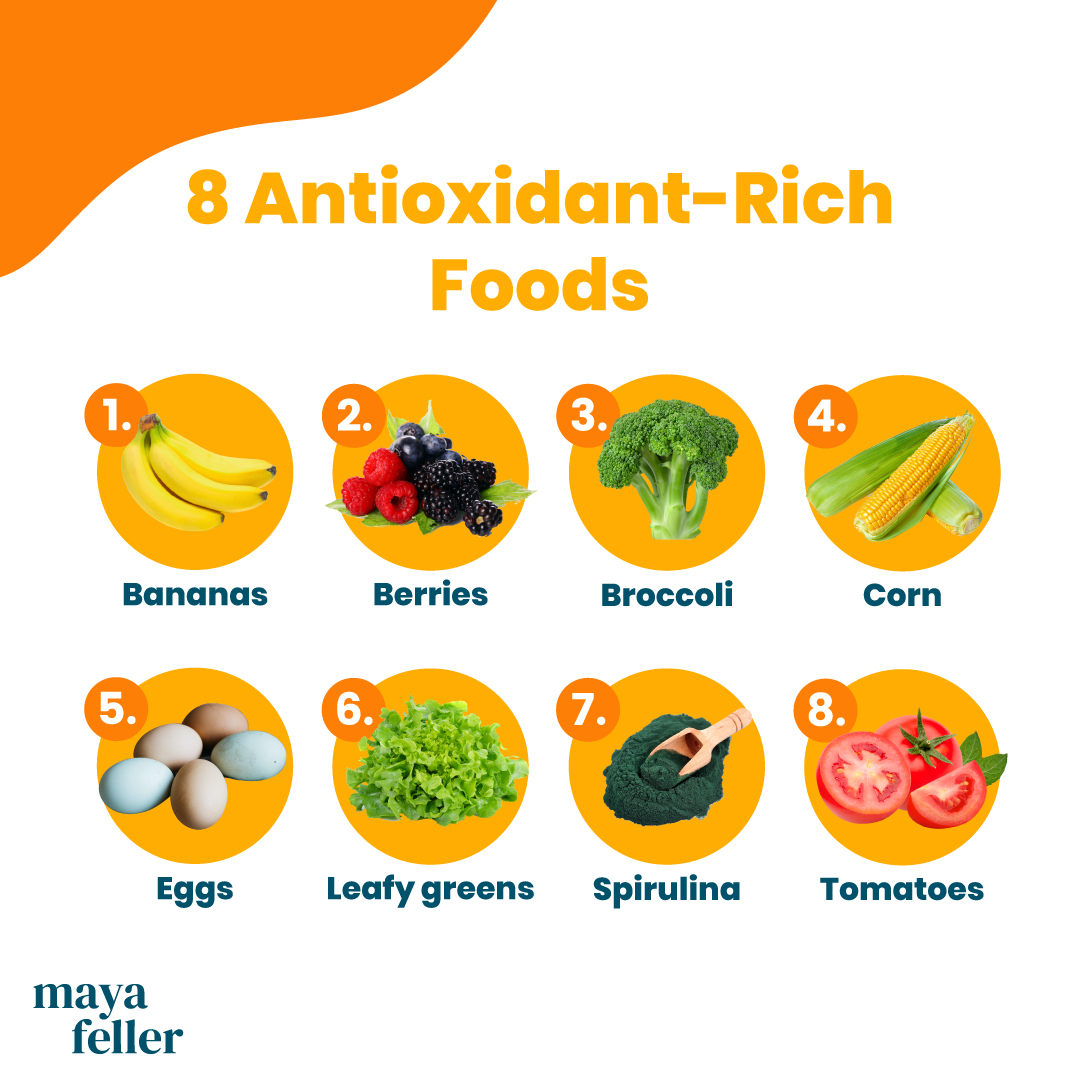4 Surprising Antioxidant Benefits: Why Are Antioxidants Good For You?
So many of us have shifted the focus to make our health, wellness, and quality of life a priority. And with the increasing awareness of chronic inflammation and the efforts to mitigate it, you’ve likely heard a lot more about antioxidants and the many antioxidant benefits for your health.
But what, exactly, are antioxidants and how can you get more of them into your regular pattern of eating?
Keep reading to get some strategies to help answer these very important questions and learn how to make sure you’re consuming plenty of antioxidant-rich foods and getting all the antioxidant benefits your body needs to function optimally.
4 Amazing Antioxidant Benefits
You may be surprised to learn about the many ways consuming antioxidant-rich foods can support your health and well-being. Here are four amazing antioxidant benefits for your body.
1. Combat free radicals
First, let’s take a look at what antioxidants are. Simply put, what do antioxidants do for the body?
As I recently mentioned in regards to my Antioxidant-Rich Kale and Banana Smoothie, antioxidants are natural substances that are found in plants. And these substances help blunt the effects of free radicals on your cells. [1]
Free radicals are unstable molecules that naturally form in your body when you come into contact with any outside force, such as pollution or even some foods and forms of exercise.
Some of the more well-known antioxidants that fight free radicals include vitamins C and E along with beta-carotene, selenium, and manganese
2. Fight inflammation
Another one of the top antioxidant benefits for your body is that they help to manage chronic inflammation.
Here’s how: The very free radicals we discussed above can cause damage to your cells, which is known as oxidative stress. This damage results in chronic inflammation that can lead major health conditions such as diabetes heart disease, cancer, Alzheimer’s disease, and even vision loss.
Interestingly, numerous studies have shown that simply consuming antioxidant-rich foods has the potential to help prevent theses inflammatory illnesses. This is because in addition to displaying antioxidant activity, many vitamins and minerals also contain anti-inflammatory activities.
In fact, several preclinical studies have shown that the bioactive extracts and compounds from certain nutrients naturally block two major signaling pathways (NF-κB and mitogen-activated protein kinases, or MAPKs), which are thought to promote inflammation. [2]
3. May decrease risk of heart disease
Heart disease is the leading cause of death throughout the world, accounting or 17.9 million deaths each year. And more than 80 percent of these deaths due to heart attacks and strokes, while one-third occur in people under the age of 70. [3]
While the data is very sobering, fortunately one of the major antioxidant benefits is the impact on heart health.
According to a 2016 review on the impact of antioxidant consumption on coronary artery disease, antioxidants have shown promise in helping to both prevent and treat this condition
Specifically, antioxidant consumption was found to reduce the risk of cardiovascular death as well as non-fatal myocardial infarction (heart attack). [4]
Meanwhile, other studies have shown that the antioxidants in green tea (specifically the catechins and polyphenols) may help counteract the effects of smoking on blood flow and even improve brachial artery flow-mediated dilation in people with coronary artery disease. [5]
4. May lower the risk of some cancers
Finally, antioxidant benefits extend to lowering the risk of developing some cancers as well.
According to the National Cancer Institute, free radicals can damage our DNA and, as a result, may play a role in the development of cancer.
Because antioxidants neutralize free radicals, they may play an important role in cancer prevention.
While the study findings have been mixed, some preliminary studies have found that antioxidant consumption could lower the risk of certain types of cancers, such as prostate, skin, and gastric cancers. [6]
Good Sources of Antioxidants
Now that we’ve reviewed some of the top antioxidant benefits, let’s take a look at some food sources of antioxidants so you know how to get more of these beneficial compounds into your meals.
Here are some of the top antioxidant-rich foods you should consider adding to your regular nutritional rotation.
- Bananas and plantains
- Berries
- Broccoli and Romanesco
- Corn
- Eggs
- Leafy greens such as bok choy, dandelion, and beet greens
- Spirulina and sea vegetables
- Tomatoes
As you can see, these foods are not only delicious but also versatile, allowing them to be used in a variety of meals. For example, you can add berries or bananas to your morning smoothie or breakfast porridge.
Or you can combine a few of these into a tasty dinner, like I did by adding both corn and tomatoes to thisSpicy Salmon Chowder recipe.
Another one of my favorite ways to take advantage of antioxidant benefits is to consume leafy greens in a variety of salads, such as in this Winter Kale Pomegranate Salad with Candied Walnuts.
The options are truly endless. The key is to find something you enjoy eating and incorporate antioxidant-rich ingredients on a regular basis to best support your overall health and well-being.



Leave a Reply